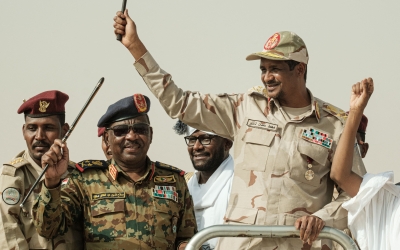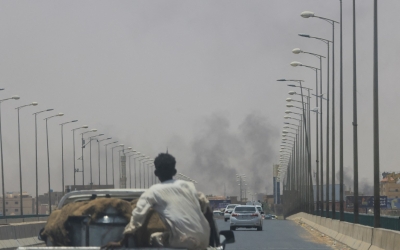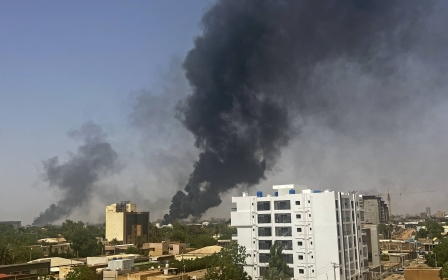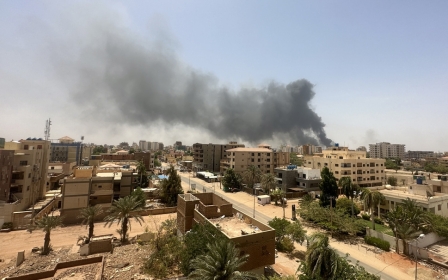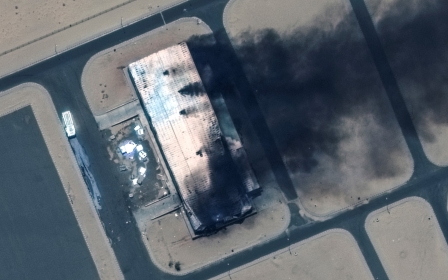Who is Hemeti? The feared former warlord vying for control in Sudan
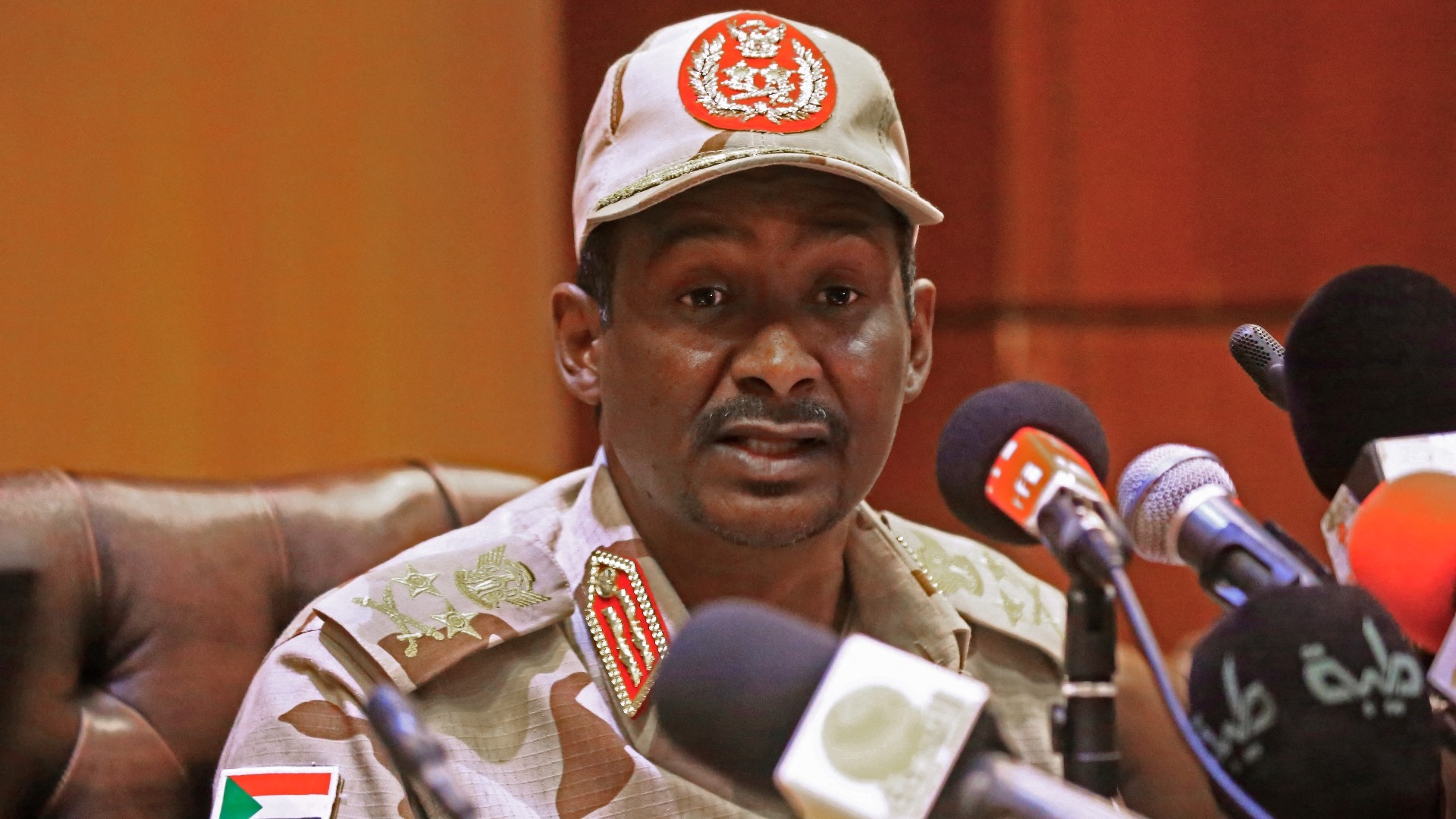
A power struggle between Sudan’s two most senior military figures has descended into deadly fighting for a third consecutive day.
At least 97 civilians are reported to have been killed and over 900 wounded, as violence broke out in the capital Khartoum and other cities between the Sudanese Armed Forces (SAF) and the paramilitary Rapid Support Forces (RSF).
Tensions have simmered for months between the military, led by the country’s de facto head of state General Abdel Fattah al-Burhan, and the RSF, headed up by Mohamed Hamdan Dagalo, widely known as Hemeti.
Just 18 months ago, Hemeti lent his support to Burhan, as the latter carried out a military coup against the then transitional military-civilian government.
But the uneasy alliance between the two has well and truly ended: Hemeti went live on television on Saturday to state that Burhan would be brought to justice or "die like a dog".
New MEE newsletter: Jerusalem Dispatch
Sign up to get the latest insights and analysis on Israel-Palestine, alongside Turkey Unpacked and other MEE newsletters
Who is Hemeti, and how did he go from loyalist warlord to being labelled a "rebel commander" attempting to seize control of Sudan’s airports and presidential palace?
Warlord accused of abuses
Hemeti was born to a Chadian Arab clan in the mid-1970s, fleeing war as a child and settling in the western Sudanese region of Darfur the following decade.
He had no formal education, but went on to become the leader of one of the largest Janjaweed militias - a collection of paramilitary groups involved in a government campaign in Darfur that killed at least 200,000 people, according to the UN.
The Janjaweed, which became known as the "devils on horseback", were deployed by Khartoum in 2003 to fight against rebels in the area.
They, along with the SAF, were accused of a wide range of human rights abuses in Darfur including executions, torture and rape. In addition to hundreds of thousands of deaths, at least 2.5 million people were displaced.
In 2013, the Janjaweed militias were officially formalised and morphed into the RSF, which Hemeti took control of as a reward for his loyalty to Khartoum, where other militia leaders had rebelled.
Under Hemeti’s command, the RSF was deployed against other rebellions in Sudan, including in South Kordofan and Blue Nile state.
Hemeti's RSF acted as de facto bodyguards to former president Omar al-Bashir and leading figures in his National Congress Party (NCP) during the autocrat's 30-year rule.
When the Sudanese revolution erupted in 2018 and it became clear that there was no other option but to remove Bashir, Hemeti - some say opportunistically - came out in support of protests and the ousting of his former benefactor.
But despite that support, Hemeti’s RSF were the primary culprit during the 3 June 2019 sit-in massacre, when heavy gunfire and tear gas fired by authorities killed over 100 protesters.
Uneasy alliance with Burhan
In the years that followed, a hybrid military-civilian government emerged, with a deadline set for a transition to a civilian government.
As part of the transition, Sudan’s then government had sought to send Bashir to the International Criminal Court (ICC) and deliver justice over past atrocities, including in Darfur and during the June 2019 massacre.
Burhan, who, like Hemeti, is potentially implicated in such atrocities, carried out a military coup in October 2021 and became de facto ruler.
Hemeti lent his support for what he described as “correct[ing] the course of the people's revolution, and preserv[ing] the security and stability of the country".
Though the two did not get along personally, and have different international sponsors and sources of power and wealth, it was seen as a marriage of convenience.
Burhan is favoured by Egypt and by figures who held power under Bashir.
He also controls a sprawling military-industrial complex, the Military Industry Corporation, one of the country's largest state-owned corporations, which produces a range of defence equipment.
Meanwhile, Hemeti, and his influential brothers, control gold mines in Darfur and have supporters in the United Arab Emirates and Saudi Arabia.
When the Saudi-led coalition needed mercenaries for its war in Yemen, it turned to Sudan - specifically Hemeti - who supplied them.
As allies of detained former leader Bashir began to regain a political foothold in the country, Hemeti said in February that the coup was a "mistake" and that it had "become a getaway for the return of the former regime".
He subsequently became a vocal backer of a December 2022 US-sponsored framework deal towards a purely civilian transitional government.
One of the conditions of the deal, a draft of which was seen by MEE, calls for the integration of the SAF and RSF to be agreed within 10 years.
Hemeti supports that timeline, while Burhan and the SAF want that process of integration to take two years.
That disagreement over the RSF's integration into the army schedules is part of a wider power struggle between two men which has brought violence to the streets of Sudan, with likely more uncertainty and instability to come.
This article is available in French on Middle East Eye French edition.
Middle East Eye delivers independent and unrivalled coverage and analysis of the Middle East, North Africa and beyond. To learn more about republishing this content and the associated fees, please fill out this form. More about MEE can be found here.


